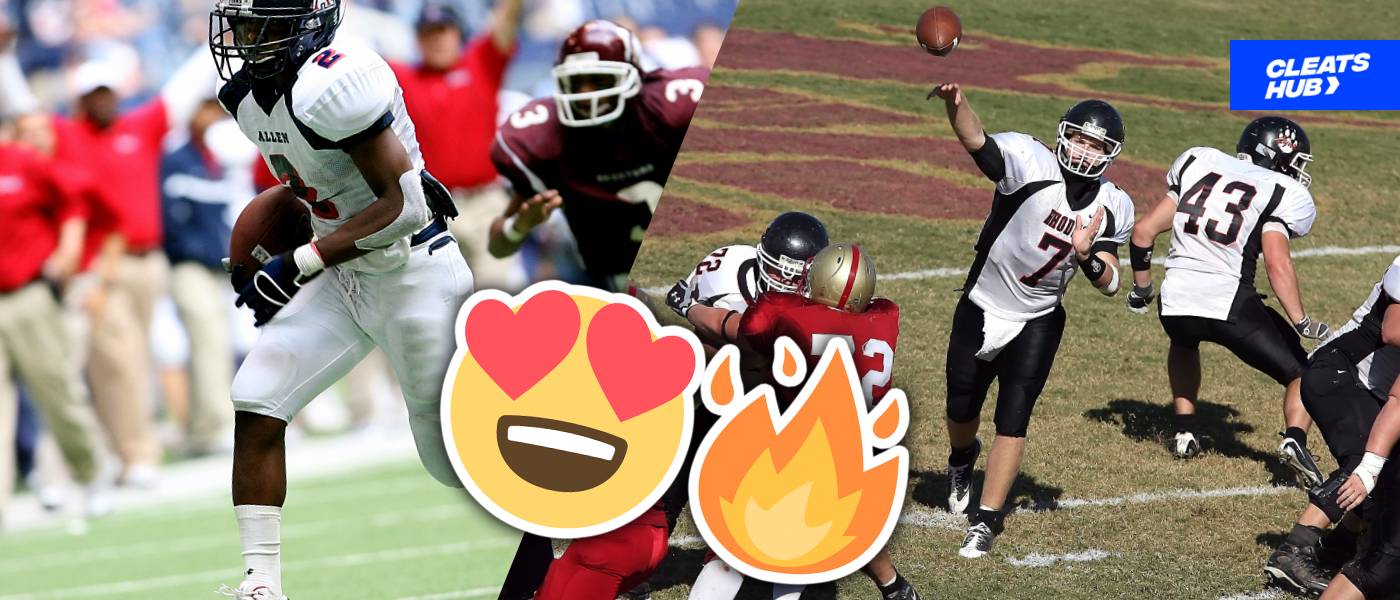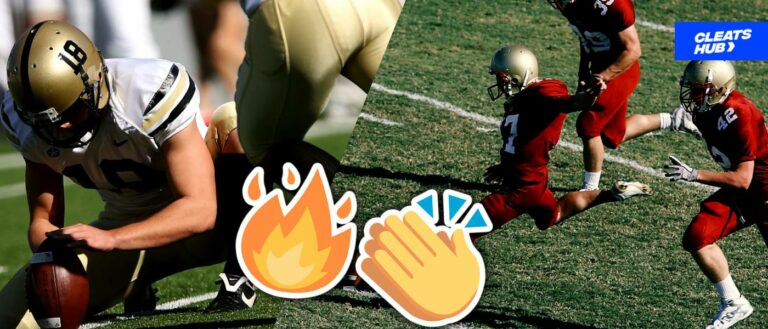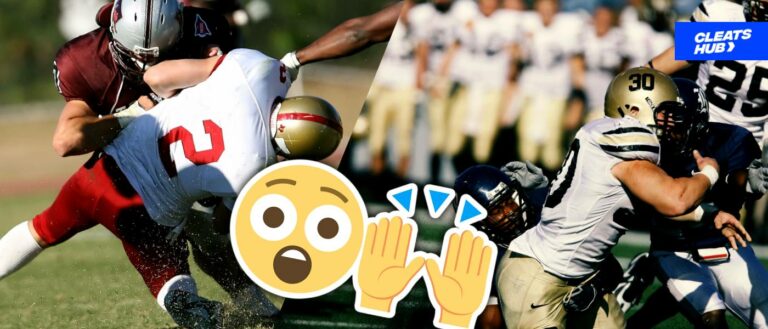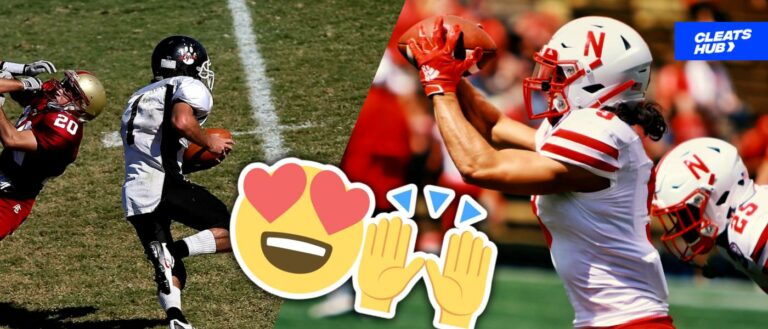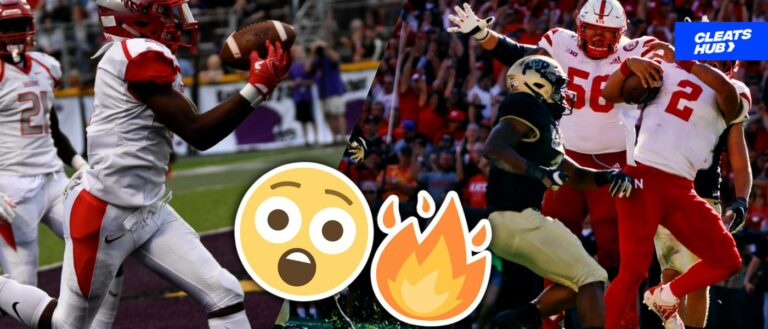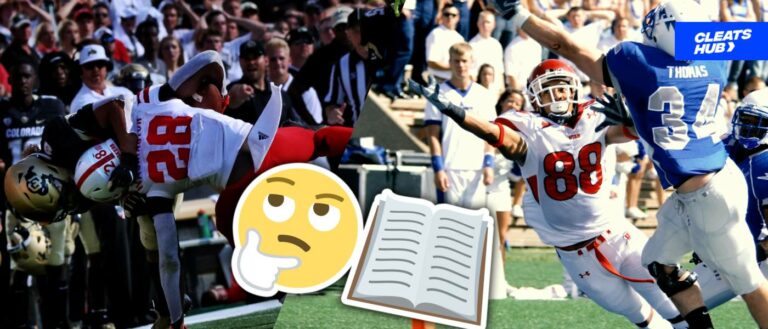What is a Quarterback? NFL’s Star Players
In American football, the quarterback is a key position. It holds the most importance in the field. The quarterback runs the offense for the group, calls the plays, and does them.
Likewise, quarterbacks claim the ball after it is gotten from the center. From that point forward, they choose where to throw or run the ball, and regularly score scores.
This article will examine what a quarterback is, what their obligations are, and how to be an effective quarterback.
Most importantly, the quarterback settles in straightforwardly behind the center in all-out attack mode side of the ball.
Toward the start of each play, the quarterback gets the ball from the middle.
Furthermore, the quarterback has various choices once they have the ball. They have three choices: they can either toss the ball to a colleague, give it to a running back, or carry it themselves.
Role of a Quarterback
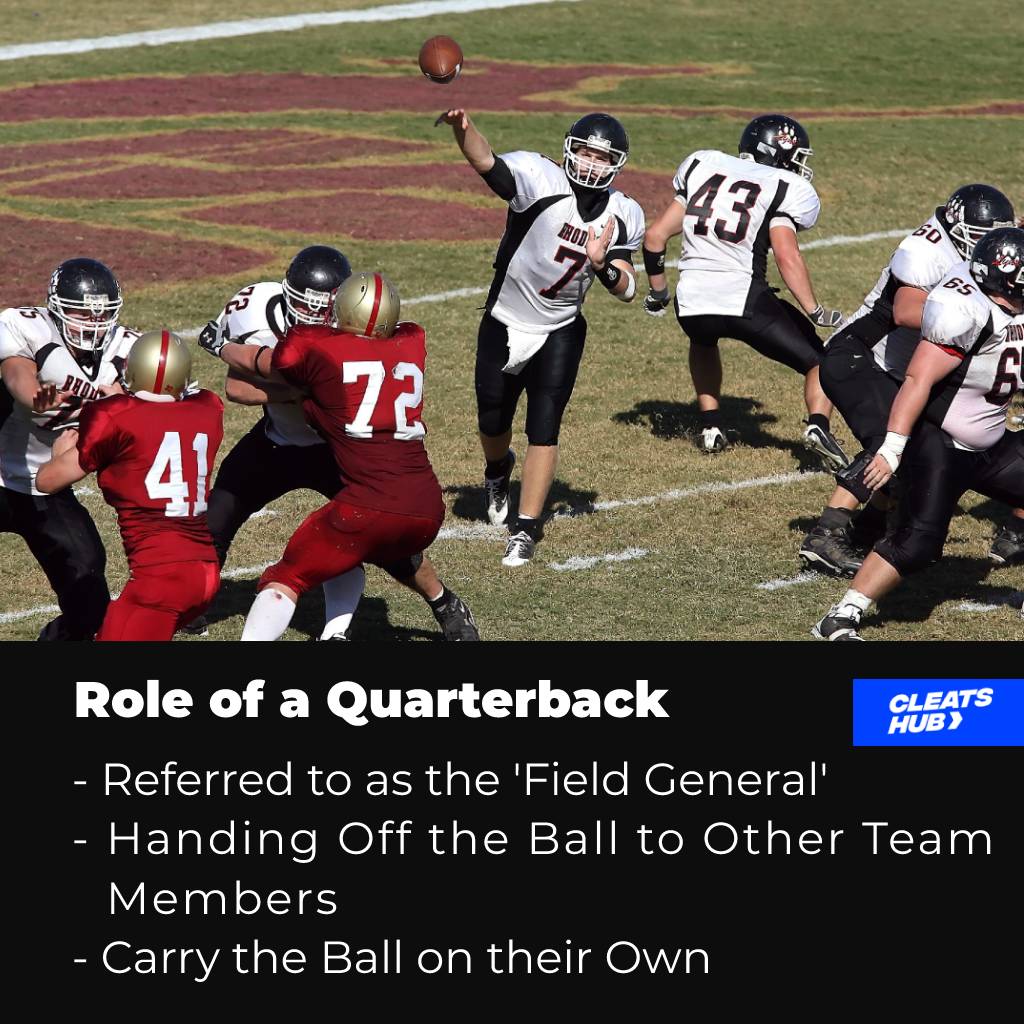
In American football, the quarterback is a significant part. Quarterbacks are much of the time referred to as the “field general” since they assume responsibility for the offense and the greater part of the field choices.
Toward the start of each play, the quarterback ordinarily lines up behind the center and takes the snap from them.
It is worth focusing on here that the quarterback’s principal obligation is to hand off the football to other members to propel the ball down the field and score points.
However, on the off chance that fundamental, the quarterback might convey the ball all alone.
Moreover, the quarterbacks need to be strong leaders with the capacity to make split-second judgements under duress in addition to their physical prowess.
In addition, they must be able to read the defense and alter their strategy accordingly. They work closely with the offensive coordinator to establish and carry out a game plan.
Types of Quarterbacks
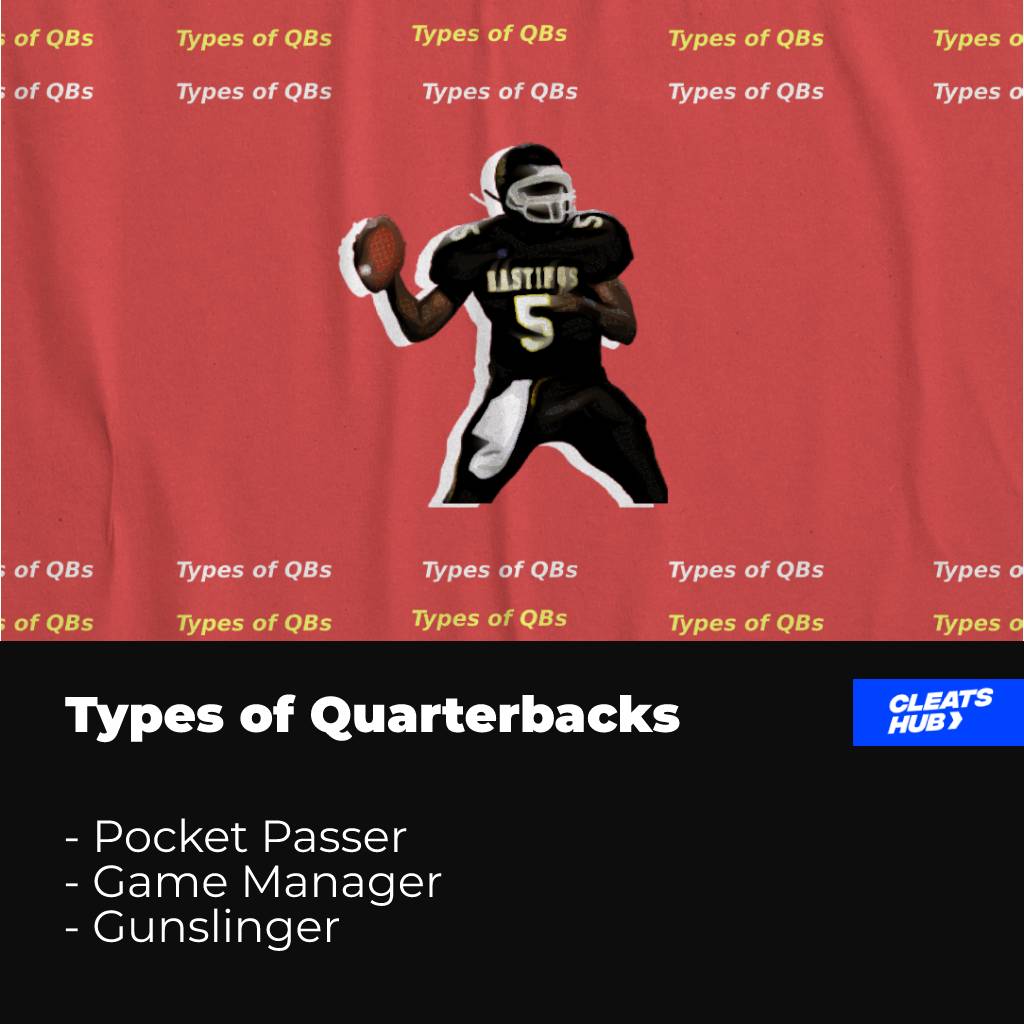
There are various quarterback types, each of which has strengths and limitations of their own. The most typical varieties include:
Pocket Passer: A pocket passer is a quarterback who likes to pass the ball while remaining generally in the pocket, which is the region behind the offensive line.
Furthermore, they frequently have strong arms and extraordinary precision, yet they probably won’t be pretty much as dexterous as different quarterbacks.
Dual-Threat: A quarterback who is similarly skilled at passing and running the ball is alluded to as a dual-threat quarterback.
They are habitually utilized in read-option plays when they have the decision to one or the other pass or run since they are successful both inside and beyond the pocket.
Game Manager: A quarterback who is liable for restricting errors and dealing with the game’s beat is known as a game manager.
They probably won’t be the flashiest or most fascinating players on the field, yet they are dependable.
Gunslinger: A quarterback who is notorious for taking chances and making daring, aggressive plays is known as a gunslinger.
They may be more prone to turnovers but have strong arms and are eager to throw the ball far downfield.
Mobile: A quarterback who can move about and make plays outside of the pocket is said to be mobile. They are frequently swift and elusive, although they might not be as accurate as a pocket passer.
System: A quarterback who excels in a particular offensive system or plan is known as a system quarterback.
However, they may not perform as well in other systems, but they can excel in the specific playing style used by their side.
Skills Required for a Quarterback
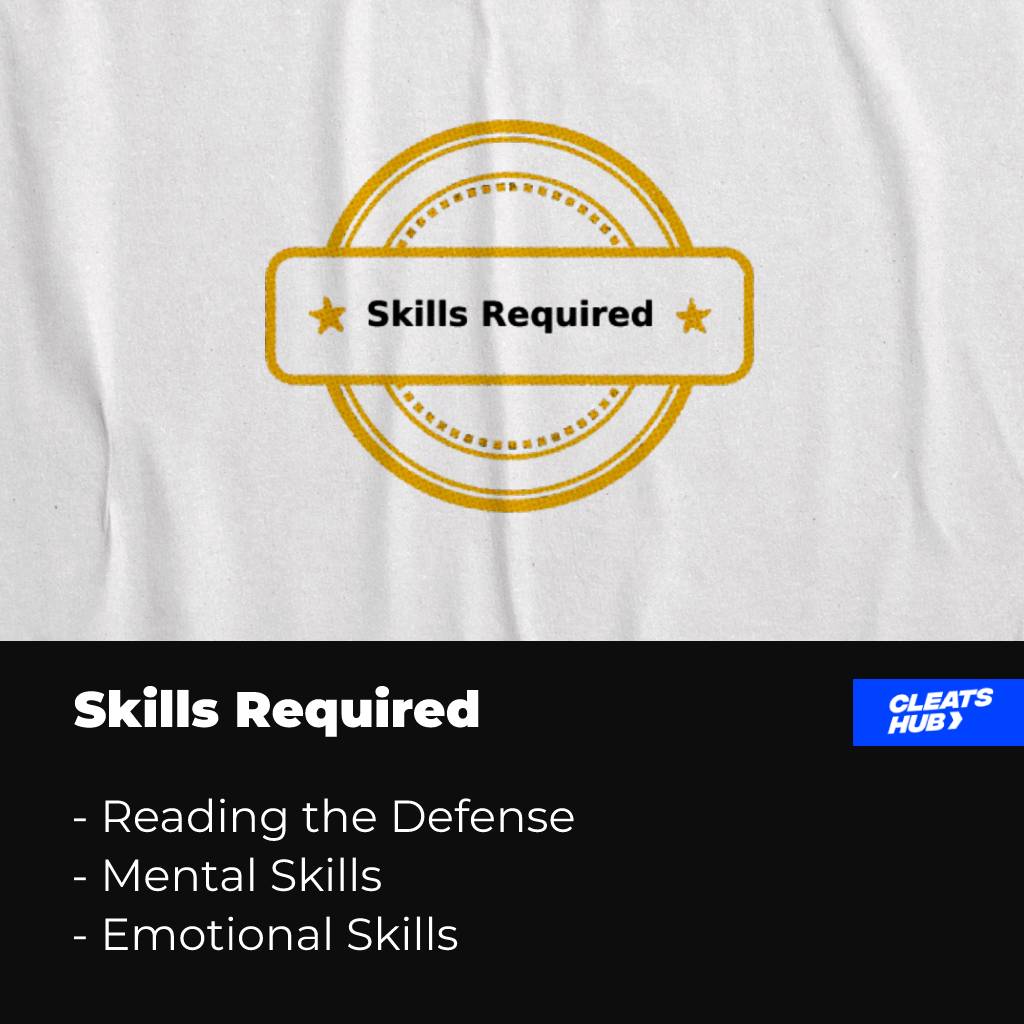
A specific arrangement of capacities are fundamental for the quarterback position. A fruitful quarterback should be precise, have areas of strength, and proceed with potentially dangerous courses of action.
To keep away from defensive pressure, they should likewise have great footwork and have the option to move around in the pocket.
A successful quarterback should also be a skilled communicator and possess strong leadership qualities.
Reading the Defense
Physical Skills
Arm Strength: A quarterback needs strong arm muscles in order to throw the ball accurately and quickly. In order to develop this, frequent strength training is necessary.
Accuracy: A quarterback must be able to consistently throw the ball to a predetermined target. This calls for dexterity, concentration, and practice.
Mobility: To try not to be sacked or gone after, a quarterback should have the option to move quickly and effectively inside the pocket. This calls for deftness, snappiness of development, and great footwork.
Mental Skills
Decision-making: Based on what they observe on the field, a quarterback must quickly decide where to throw the ball. This calls for sound judgment, a rapid processing speed, and the capacity to understand the defense.
Vision: To see the field and read the defense, a quarterback must have great vision. They should have the option to foresee where their collectors will be and choose where to toss the ball in a brief moment.
Leadership: As the offensive organizer, the quarterback is liable for moving and spurring the group. They should have the option to discuss plainly with their partners and act with affirmation and definitiveness when on the field.
Emotional Skills
Work Ethic: A decent quarterback should be focused on their work and eager to invest the energy and exertion important to improve their skills. This calls for discretion, tirelessness, and a strong hard-working attitude.
Resilience: A quarterback will unavoidably experience setbacks like interceptions or sacks. A quarterback should be strong and ready to recover from these setbacks.
Mental Toughness: A quarterback should be mentally strong and capable of performing under pressure. Considerably under outrageous tension, they should have the option to keep a cool head and confidence.
In conclusion, a quarterback must possess a variety of physical, cerebral, and emotional abilities.
In order to accurately throw the ball and move around the pocket, they are required to be be physically fit and agile. The ability to think quickly read defenses, and effectively communicate with teammates are also necessary.
Thirdly, they need to be emotionally strong and resilient in order to deal with setbacks and perform under pressure.
Top quarterbacks in American football
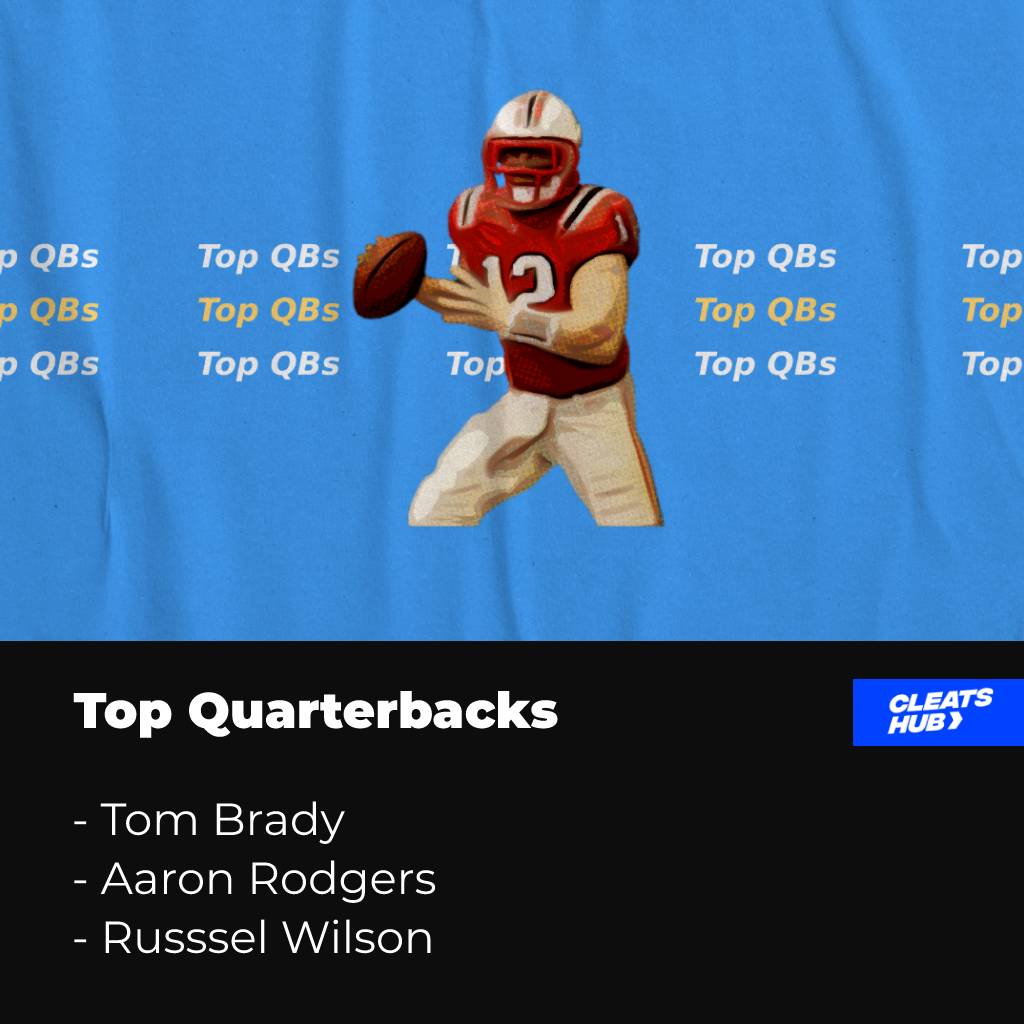
The top quarterbacks throughout the entire existence of American football is a controversial subject that has been contended for a long time. Any discussion about the best quarterbacks ever, however, consistently raises a select gathering of names.
Tom Brady: Tom Brady, who has won seven Super Bowls during his profession, is generally perceived as the best quarterback ever. He has won the league MVP award three times and possesses numerous NFL records.
Joe Montana: One more name that is routinely raised while discussing the best quarterbacks in NFL history is Joe Montana. One of the most clutch players in NFL history, he won four Super Bowls and multiple times got the Super Bowl MVP award.
Peyton Manning: Peyton Monitoring won two Super Bowls and holds numerous NFL records, including the most career passing yards and touchdown passes. He is habitually viewed as one of the best quarterbacks in NFL history.
Johnny Unitas: With three NFL titles added to his repertoire and a few throwing records accomplished, Johnny Unitas is perceived as one of the most incredible quarterbacks ever.
Brett Favre: To wrap things up, Brett Favre is often referenced while discussing the best quarterbacks in NFL history. He was famous for his steadiness and sturdiness. In addition, he likewise had one Super Bowl triumph and three MVP awards in the NFL.
These five quarterbacks are just a small sample of the countless legendary athletes who have significantly improved American football. In any case, they are undeniably viewed as the absolute best to have at any point stood firm on the situation.
Top 10 Quarterbacks with Most Touchdown Passes in NFL History
| Rank | Player | Touchdown Passes |
| 1 | Tom Brady | 649 |
| 2 | Drew Brees | 571 |
| 3 | Peyton Manning | 539 |
| 4 | Brett Favre | 508 |
| 5 | Aaron Rodgers | 475 |
| 6 | Philip River | 421 |
| 7 | Don Marino | 420 |
| 8 | Ben Roethlisberger | 418 |
| 9 | Matt Ryan | 381 |
| 10 | Eli Manning | 366 |
How many quarterbacks are in a team?
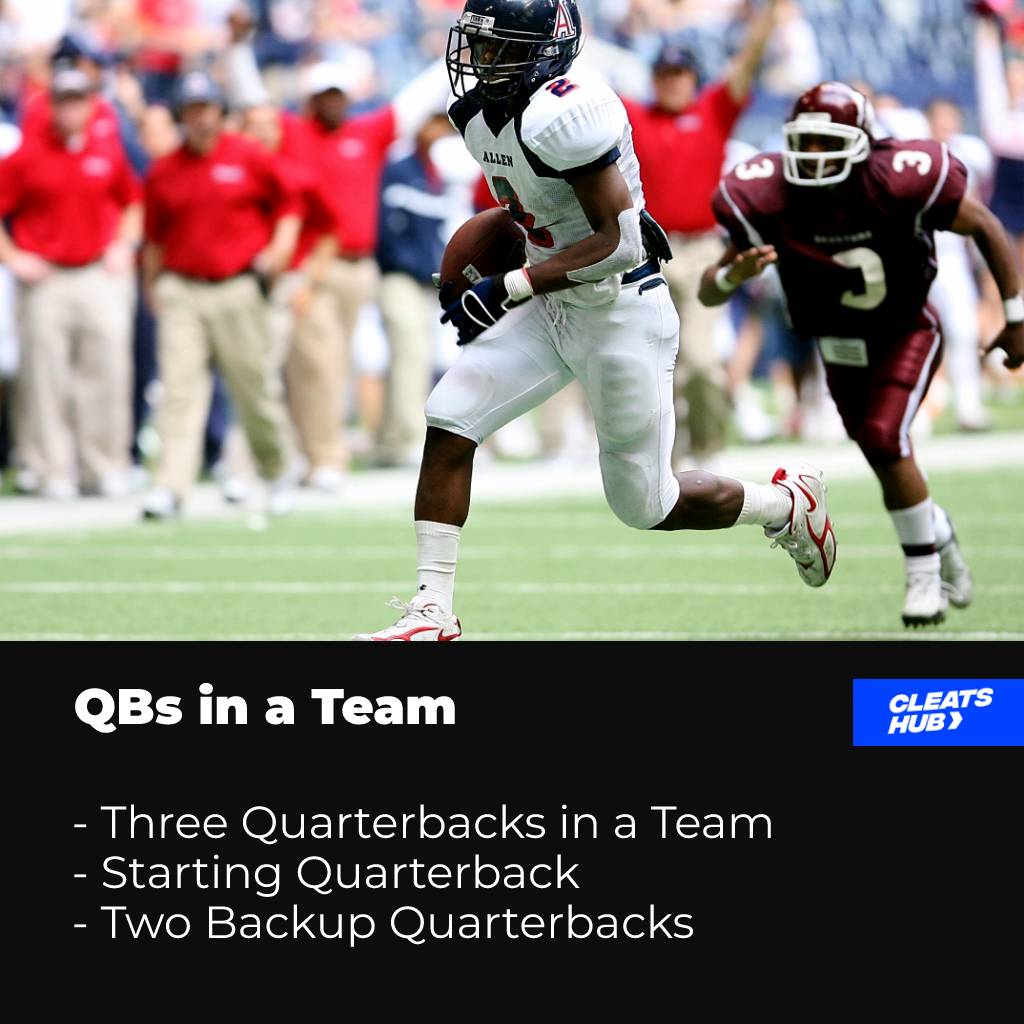
NFL teams normally have three quarterbacks on their roster, though this can change based on the requirements and circumstances of the individual team.
The starting quarterbacks are labelled as the offensive team captain because they play the majority of the offensive snaps.
The backup quarterbacks are essential because they are prepared to take over if the primary quarterback is injured or unable to play.
Moreover, practice squad are also permitted to carry one or more quarterbacks.
In the event of an injury or other circumstance, they may be called up to the active roster. In addition to the current roster, this exists.
Why Are Most Quarterbacks Handsome?
Have you ever wondered why the quarterback is often the most attractive player on his squad when you look at the position of quarterback at all levels of competition?
Moreover, the best-looking child is often the “cool” child starting in adolescence, and the “cool” child is more likely than not allowed to play quarterback at a young age. Due to their superb appearance, the most attractive kids typically exude the most charm and confidence.
One of the most crucial traits in a quarterback is confidence. The quarterback (QB) needs to maintain his composure in the face of difficulty.
Conclusion
Clearly, the quarterback position in American football is fairly significant.
Quarterbacks stand out enough to be noticed, bring in the most cash, and can make or break a team’s season. They must contend with a great deal of pressure, judgment, and the sporadic hit that causes them to see stars.
In spite of everything, quarterbacks continue to rule the football field. With a perfectly thrown touchdown pass or a drive that wins the game, they can make grown men cry.
And let’s face it, who wouldn’t want to win the Super Bowl as the hero?

